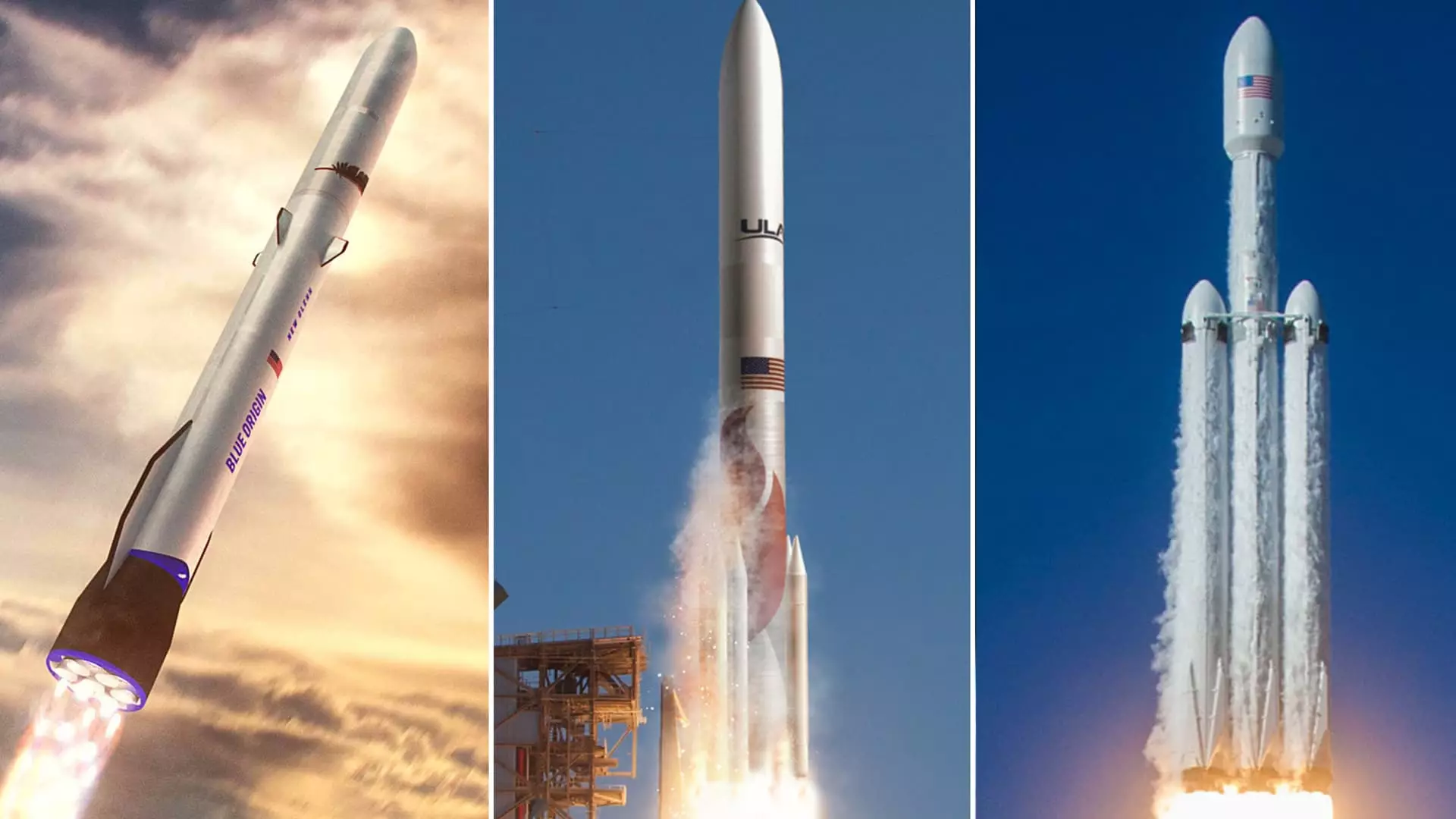The recent announcement by the Pentagon regarding the winning bidders in the rocket launch contract sweepstakes has certainly shaken things up in the space industry. One of the most notable winners is Jeff Bezos’ Blue Origin, which secured a spot for the first time in this lucrative endeavor. This marks a significant achievement for Blue Origin, as it now joins the ranks of other major players such as SpaceX and United Launch Alliance (ULA).
The contracts awarded under the Pentagon’s $5.6 billion National Security Space Launch program signify a new chapter in the competition for space missions. With Blue Origin, SpaceX, and ULA all in the mix, the stakes have been raised significantly. This signals a shift towards a more diverse and competitive landscape in the space industry, with multiple companies vying for lucrative government contracts.
The inclusion of Blue Origin in the latest round of contracts indicates a changing dynamic in the space race. With Jeff Bezos’ company now in the running, the competition is set to intensify in the coming years. The fact that ULA and SpaceX have already been competing under previous phases of the NSSL program adds an interesting dimension to the ongoing rivalry. As we look ahead to Phase 3 of the program, it is clear that the field is expanding, allowing for more companies to enter the fray.
While the Pentagon’s decision to award contracts to Blue Origin, SpaceX, and ULA opens up new opportunities for these companies, it also presents unique challenges. The increased competition for space missions means that companies will need to step up their game in order to secure future contracts. This could lead to greater innovation and technological advancements in the space industry, benefiting not only the companies involved but also the broader scientific community.
The Pentagon’s rocket launch contract sweepstakes have ushered in a new era of competition and collaboration in the space industry. With Blue Origin, SpaceX, and ULA now part of the exclusive club of winning bidders, the future looks promising for advancements in space exploration. As we move forward into Phase 3 of the NSSL program, it will be interesting to see how these companies navigate the challenges and opportunities that lie ahead.

